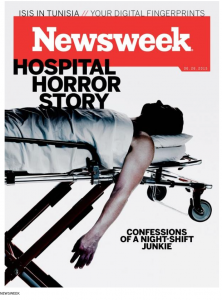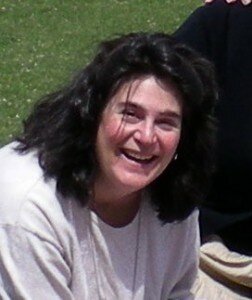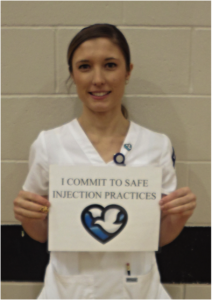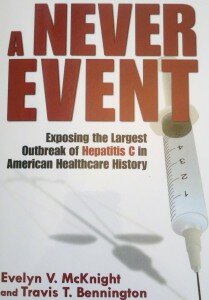The cover story of Newsweek June 18, 2015 edition is When Drug Addicts Work in Hospitals, No One is Safe.
The lengthy article was written by Kurt Eichenwald and was the result of an interview and correspondence with David Kwiatkowski, the radiologic technician who was sentenced to 39 years in prison after infecting patients with hepatitis C through unsafe injection practices. Kwiatkowski, who was infected with hepatitis C, stole injectable pain medications from the hospital where he was working and injected himself. He changed the needle, rinsed the syringe with water, refilled the syringe with saline and put these syringes back on the medication cart for use with patients. In this way, at least 45 patients in seven states were infected with hepatitis C. One patient has died from the infection.
Regrettably, this scenario is not unusual in the United States. The CDC estimates that 30,000 people may have been exposed to hepatitis C over the past decade by infected hospital employees who have used narcotics intended for patients. Federal researchers estimate that 100,000 healthcare workers in the United States are addicts and their theft of narcotics from patients is believed to be widespread. As many as 379,000 health care workers in the United States are addicted to drugs or alcohol, according to New Jersey pharmacist Mitch Sobel, who delivered this information at a recent New Jersey Department of Health meeting.
Getting back to the excellent Eichenwald article, what is unusual is that Kwiatkowski apologized…and desribed how he diverted drugs so that we can correct the healthcare delivery system to prevent harm to the public.
Since he is not eligible for parole, Kwiatkowski has nothing to gain from his disclosures. In fact, he and prison officials fear the article might anger other inmates and place him in danger.
As one who contracted hepatitis C through unsafe injection practices, i want to commend Mr Kwiatkowski for apologizing and sharing his story. It is so meaningful to victims when there is an apology; I still yearn for the gift of this simple, but profound gesture of respect. It is very difficult to fully heal from harm of this magnitude without an apology–it is as if something is missing, and closure is impossible.
Kwiatkowski not only apologized, but gave us a clear picture of how diversion takes place in hospitals. This important “insider” knowledge–not unlike when casinos ask cheaters to help them catch other cheaters–will help us make the changes that are long overdue. As we reported in a previous blog, HONOReform is helping to head efforts at a national level to help prevent drug diversion. We encourage all stakeholders to join us.
In the Newsweek article, Kwiatkoski said he is “haunted by the knowledge that he hurt so many people and believes he needs to make amends by revealing the scope and methods of this medical crime that endangers un unknowing public. “
Somebody has to tell how it’s done, how easy it is and how the structure of the hospitals isn’t any good to stop it,’ he says of drug diversion.”
Examining all ways to prevent drug diversion has never been more important. Patients throughout the country are harmed, and there is no national system in place to stop diverters. From just one patient affected by unsafe injection practices, thank you, David Kwiatkowski, for your candor. We need you and others continue to tell us how to fix the system that is so easy to violate.





